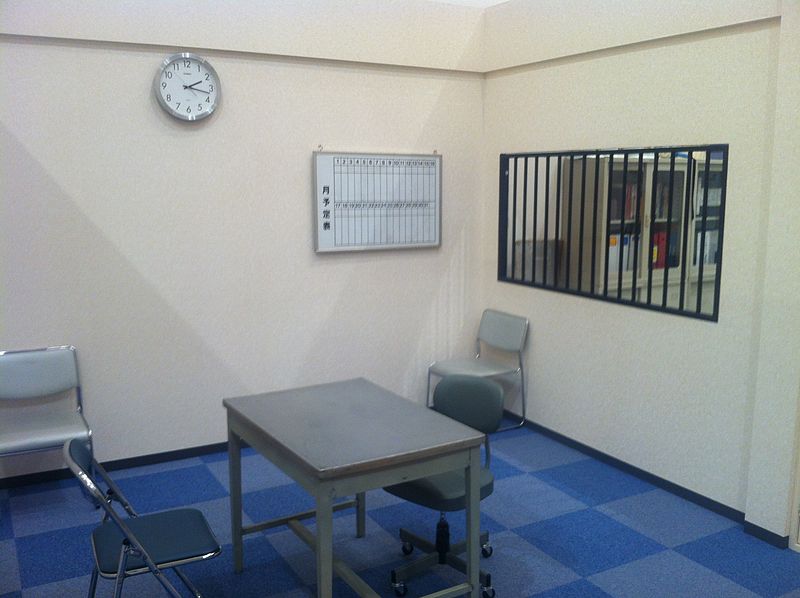Any reasonable 17-year-old in Mr. Ahmad’s position would have understood that he was in custody and would not have felt free to leave as argued by the State, implicating Miranda.
Jersey City, New Jersey – On June 15, 2021, the Supreme Court of New Jersey decided State v. Zakariyya Ahmad, in which the Court reversed the defendant’s conviction and remanded for a new trial on the counts of conviction because the recorded statement admitted at trial was obtained in violation of Miranda v. Arizona, 384 U.S. 436 (1996) and should therefore have been suppressed.
Miranda v. Arizona, 384 U.S. 436 (1966) was a landmark decision of the U.S. Supreme Court, in which the Court held that a defendant cannot be interrogated by police until they have been advised of their right to remain silent and their right to an attorney. These rights, often referred to as Miranda rights, stem from the Fifth and Sixth Amendment to the U.S. Constitution. Without proper warning and waiver of these rights, Miranda v. Arizona holds that any statement made by the defendant may be inadmissible at trial under the Exclusionary Rule, which prevents law enforcement from using evidence at trial which had been gathered in violation of the United States Constitution.
The defendant in this case, Zakariyya Ahmad, is a 17-year-old minor who arrived at University Hospital in Newark with multiple gunshot wounds, requiring surgery and treatment with pain medication, including five doses of Fentanyl. Immediately after being discharged, Mr. Ahmad was escorted by police to the Newark Police Department (“Newark PD”) and then to the Essex County Prosecutor’s Office (“ECPO”) where he was questioned by police officers as a victim of a shooting potentially related to a nearby homicide and attempted robbery at Zakkiyah’s Café. Mr. Ahmad was placed in an interview room apart from his parents which contained an audio and video recording device, and was told that the interview would be recorded but was not advised of his Miranda rights. After 27-minutes of interrogation, the police obtained a recorded statement from Mr. Ahmed regarding his version of the events of the day, including his injuries and how he got to the hospital. The recorded statement was admitted into evidence at trial despite Mr. Ahmad’s testimony that he believed he was in custody when he gave the statement and had not been advised of his Miranda rights. The jury found Mr. Ahmad guilty of second-degree conspiracy to commit robbery, first-degree robbery, first-degree felony murder, second-degree unlawful possession of a weapon, and second degree possession of a weapon for an unlawful purpose, and was sentenced to a thirty-year prison sentence.
On appeal, the Appellate Division affirmed and held that Mr. Ahmad’s constitutional rights were not violated because he was “questioned as part of an investigatory procedure rather than a custodial interrogation,” therefore his Miranda rights were not violated. The Appellate Division also held that Mr. Ahmad’s testimony that he had been misrepresented as a victim and potential witness to obtain permission from his parents to conduct the interrogation was unsupported because he had not been asked about the homicide and apparent robbery attempt nearby at Zakkiyah’s Café nor was he considered a suspect until after the interview was conducted.

In its review, the Supreme Court of New Jersey determined that from the moment Mr. Ahmad was escorted by police to Newark PD, having been told that he could not go home with his parents and had no choice in the matter, the defendant was in a continuous state of law enforcement custody. Looking objectively at the totality of the circumstances, the Court concluded that any reasonable 17-year-old in Mr. Ahmad’s position would have understood that he was in custody and would not have felt free to leave as argued by the State, implicating Miranda. Because Mr. Ahmad was not advised of his Miranda rights prior to giving his statement, the Court found and concluded that the statement should have been suppressed because it was used at trial to cast Mr. Ahmad as a liar, thereby “clearly capable of producing an unjust result.” For those reasons, the Supreme Court of New Jersey reversed the judgment of the Appellate Division and remanded for a new trial on the count of conviction.
If you have been charged with a crime, your future is on the line. To ensure the best possible outcome in your case, call The Law Office of Eric M. Mark to schedule a free consultation with an experienced attorney who will help devise the best criminal defense strategy for your case.


Join the conversation!